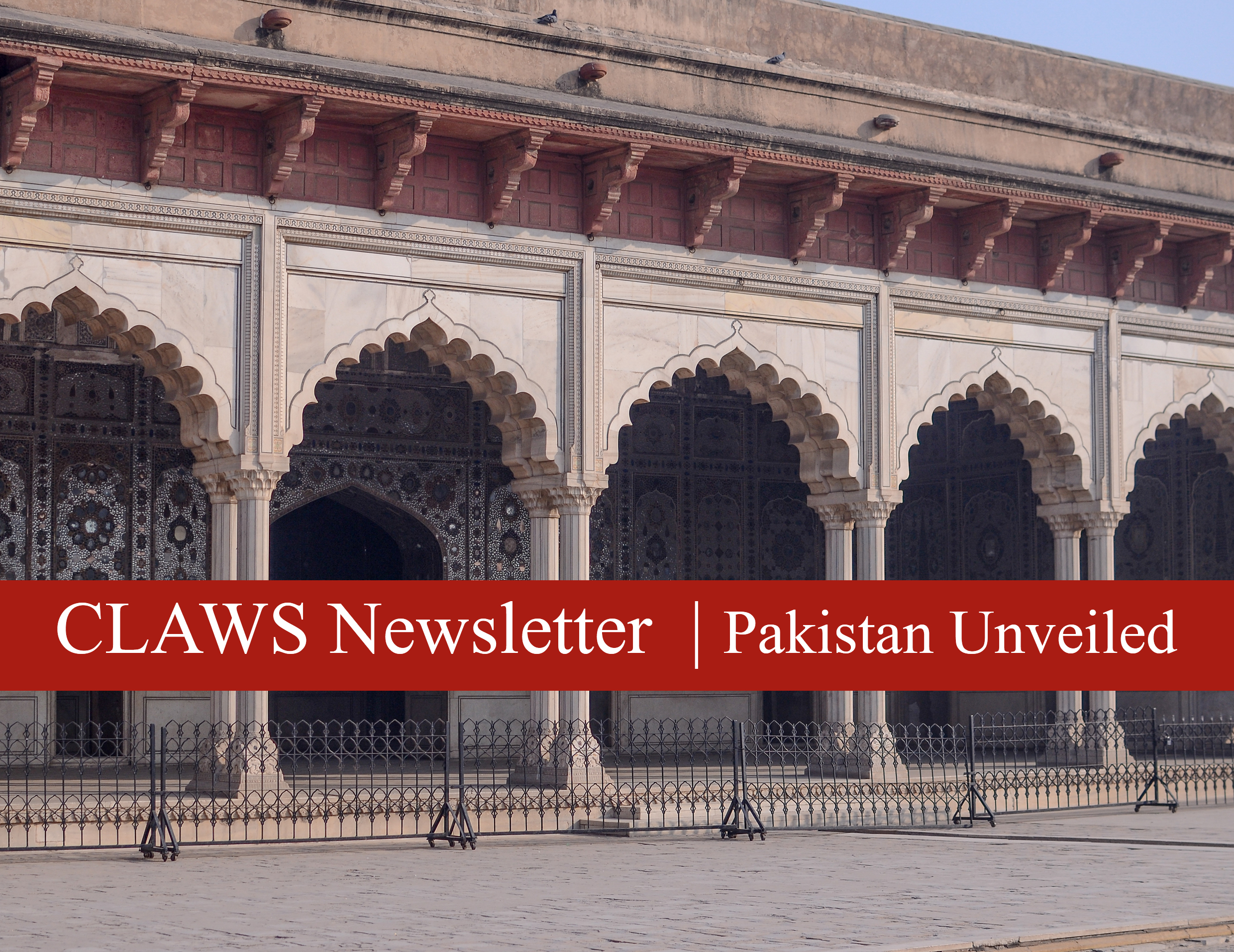
Pakistan Unveiled | Volume I | No. 11
In this edition of Pakistan Unveiled (July 16-31, 2025), the country’s complex interplay of political unrest, economic recalibration, regional diplomacy, and internal security challenges comes into sharp focus. Domestically, the extended detention of Dr Mahrang Baloch and her fellow activists underlines the state’s ongoing crackdown on dissent, drawing sharp criticism from civil society and rights groups. Economically, Pakistan reported a $2.1 billion current account surplus—the highest in 22 years—buoyed by strong remittances and exports. Environmentally, a notable five-year ban on hotel construction near northern lakes was introduced to protect fragile ecosystems in Gilgit-Baltistan. A number of federal initiatives sought to boost sustainability and infrastructure: a student-centric EV scheme, a 50% reduction in Karachi Port charges to promote green shipping, and exploration of a Gwadar-Gulf ferry link. In parallel, the Senate moved to abolish the death penalty for two offences, reflecting tentative justice reforms. Politically, Pakistan reaffirmed support for Kashmiris and sentenced over 100 PTI members for the May 9 unrest, triggering claims of political victimisation.
Externally, Pakistan expanded cooperation with key partners. With China, ties deepened through CPEC and strategic coordination; a new batch of agriculture graduates completed training in Shaanxi, and co-financing discussions commenced for the ML-1 railway. With Afghanistan, developments included a revived border trade pact, joint counterterrorism efforts, and the landmark Uzbekistan-Afghanistan-Pakistan railway agreement. Relations with the EU and UK also advanced, marked by improved aviation links, halal exports, and strategic dialogue. The US-Pakistan dynamic evolved unexpectedly: a new Trump-led energy cooperation deal was announced even as punitive tariffs were imposed on India. Meanwhile, Islamabad condemned India’s security actions in Kashmir, extended an airspace ban on Indian aircraft, and reiterated support for Palestinians at the UN.
The security landscape remained fraught. A string of targeted operations neutralised TTP and Zarar group militants in KP and Balochistan, even as insurgents struck back—killing security personnel and civilians in Quetta, Mastung, and Kalat. The Balochistan bus attack, in particular, spotlighted the shifting insurgent tactic of targeting civilians, prompting renewed state vigilance and accusations of foreign backing. This period encapsulated the volatile confluence of Pakistan’s economic ambitions, regional diplomacy, domestic political churn, and persistent internal conflict.















